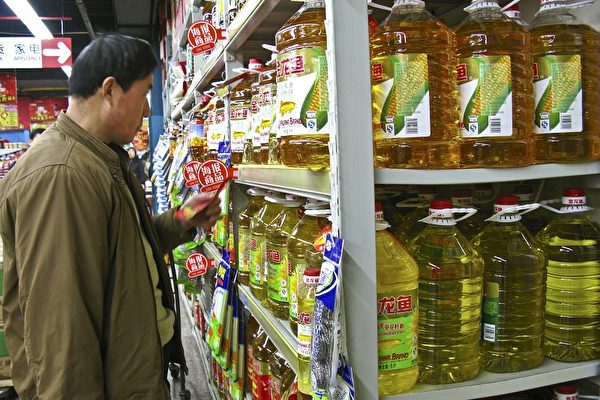Foreign media journalists’ opinions on the incident of Chinese chemical oil tankers mixing edible oil have sparked debates. Some say that even in this era of prevalent social media and undeniable truths, the Chinese Communist Party (CCP) tends to cover up and evade public anger.
On July 2nd, the New Beijing News reported that major grain and oil groups such as Sino Grain Reserves and Huifutong not only failed to use specialty vehicles to transport edible oil but also mixed it with coal-oil without proper cleaning, leading to strong public backlash.
Following the incident, many individuals utilized the open-source platform “Fahuo Bang” to identify multiple companies involved. Subsequently, the function to track truck routes was urgently taken down on July 10th.
The Asia Society’s ChinaFile, a publication of the U.S.-based think tank in New York, featured foreign journalists’ comments on the Chinese chemical oil tanker incident.
David Bandurski, Co-Director of the China Media Project under the University of Hong Kong, mentioned that over the past decade, not only food safety issues but also many news topics concerning Chinese people’s worries have been covered up by the Chinese authorities. He believes that the New Beijing News report on chemical oil tankers mixing edible oil is just another reminder of the lack of improvement in past problems under the CCP’s “public opinion guidance.”
As an observer who has long tracked mainland Chinese media reports, Bandurski pointed out that news reporting in mainland China, especially investigative journalism, has regressed significantly.
“In terms of professional reporting and transparency, China’s news standards are the worst in the world. Nowadays, many cases are controlled by local county governments or their police departments in the information dissemination process, and they are seen as so-called ‘authoritative’ news sources,” Bandurski wrote.
A shocking example is the fatal fire at the Changfeng Hospital in Beijing in 2023, which resulted in 29 deaths. The fire occurred at noon in a densely populated area of Beijing, yet the official Beijing Daily controlled by the city authorities only released an official press release on social media eight hours after the fire.
On that day, a large number of posts appeared on the internet, including eyewitness videos being suppressed and unable to spread. The eight hours of silence even surprised local journalists, as they were well aware of how strict the restrictions were during that incident.
“The New Beijing News report on improper transportation of edible oil allows us to glimpse behind the ‘facade of normalcy.’ This reminds us that when evaluating China (the CCP) in terms of economic governance, food safety, or poverty alleviation, one must consider the key factor of information transparency,” Bandurski stated.
“(Communist) China is a country full of adventurous and shameless projects and assertions. But undoubtedly, the most shameless project, one that is the country’s largest infrastructure project, is the control of information,” he added.
Foreign media journalist and China social media analyst Manya Koetse also believes that the recent edible oil scandal has not only raised concerns among the Chinese about the food safety handling process but also sparked worries among the public about the lack of transparent communication after such incidents.
When the truck tracking function on China’s logistics platform “Yunshu Bang” was suddenly taken offline, popular hashtags emerged on Weibo, such as “What are they afraid of?” and “Where did the edible oil in the tanker go?”
Another popular post featured a photo of an oil tanker on the road with a huge lid on it. A netizen wrote, “When I was young, I thought ‘turning a blind eye’ was a joke because no one could be that foolish. It turns out I was too naive.”
While the CCP officials claim that the investigation is ongoing, Chinese netizens have found that certain topics are being censored by the authorities.
Koetse pointed out that fundamentally, the main issue is that Chinese food safety scandals have brought forth numerous other problems, including weak enforcement, bureaucratic inefficiency, power games, and public deception, all of which are root causes that cannot be truly resolved.
“What is enraging is that even in the era of social media, some companies, officials, and authorities will do everything possible to avoid facing public anger once the situation has escalated. They will spare no effort to cover up the truth, even if it means ‘calling a rat a duck’,” Koetse wrote.
“‘Calling a rat a duck’ refers to an incident at a university cafeteria in Jiangxi where a rat head was found in the food, and both the school and officials insisted it was duck neck, despite widespread dissemination of images and videos on the internet, triggering widespread public skepticism.
“This blatant disregard for transparency and accountability not only erodes public trust but also highlights deeper levels of corruption and inefficiency plaguing the system,” Koetse added.

